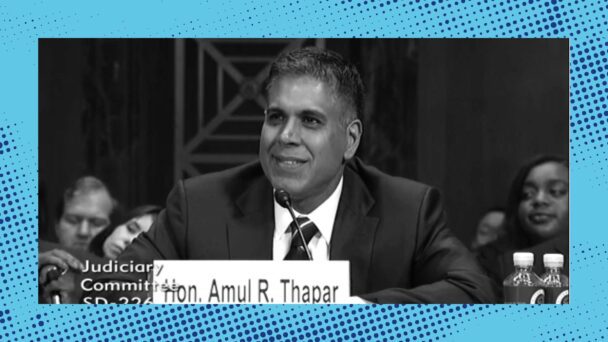Jennifer Mascott, President Donald Trump’s nominee for a seat on the Third Circuit Court of Appeals, received multiple opportunities at her confirmation hearing last Wednesday to clarify her position on the legality of murder. “Would the president be immune from prosecution if he ordered SEAL Team Six to assassinate a political opponent? Yes or no?” asked California Democratic Senator Adam Schiff.
Mascott responded reluctantly. “Senator, under the Supreme Court precedent on that question, the Supreme Court has specifically not answered it.”
Regrettably, that is technically correct. When the Supreme Court decided Trump v. United States in the summer of 2024, it declared that presidents are at minimum “presumptively immune” from criminal prosecution for “official acts,” but it did not specify what an official act is. At oral argument in that case, Trump’s attorney said that a president’s direction to SEAL Team Six to assassinate a political rival “could well be an official act.” Much to the horror of Justice Sonia Sotomayor in dissent, the majority opinion did not foreclose that possibility.
Worrying Supreme Court demurral aside, one would think that this question would have an obvious, common-sense answer: that if we are to have a system of laws and not men, the president can’t just use a military hit squad to take out an election opponent. The trouble is, Trump does not want a system of laws. So, if you are a Trump loyalist with aspirations of a federal judgeship, there are some things you just can’t say.
Mascott has spent years shoring up her MAGA legal movement bona fides. In January, for instance, she took leave from her position as a professor at Catholic Law School and took a senior position in the White House Counsel’s Office. Before that, she volunteered with the Trump-Vance transition team. Before that, she worked in Trump’s Department of Justice, and assisted with the confirmation of Justice Amy Coney Barrett. And before that, she testified in support of Brett Kavanaugh, for whom she clerked on the D.C. Circuit, when Trump nominated him to the Supreme Court.
In short, Mascott has already proven her worth as a dedicated and dependable Trump ally, and kept at it during her hearing. After the exchange above, Schiff tried again to get a straight answer out of Mascott, asking if his question about immunity was “difficult” or an “open question.” Again, Mascott dodged: She was “not sure,” she said, if Trump v. United States “fully answers all of the political mechanisms that would be in place to address and keep such a horrific situation from ever occurring.”
Mascott may have been referring to Congress’s power to impeach a president. Schiff, of course, had not asked about all political mechanisms. He only asked about one: the availability of prosecution for a political assassination.
Mascott used to be more forthcoming about her views on Trump v. United States. As a Republican witness at a Senate Judiciary Committee hearing last year, for example, Mascott contended that the Court’s opinion was “modest” and “in no way eliminated the ability to prosecute former presidents.” Rather, she said, it “was clear that unofficial acts”—a category which one would hope encompasses ordering the execution of a political rival—are “subject to prosecution similar to actions taken by a private citizen.”
Fast forward to her nomination hearing, though, and Mascott would not concede that the “modest” opinion permitted such criminal liability. The furthest she went was saying the appropriateness of prosecution for assassinating an opponent depends on “whether one could ever conceive of such a thing as an official act,” a “threshold question” she refused to answer.
Mascott is hardly the first Trump judicial nominee to embarrass herself by refusing to give an honest answer to questions if Trump prefers the lie. They won’t say that Biden won the 2020 election. They won’t say that a violent mob stormed the Capitol on January 6. And now they won’t say that Trump can’t weaponize Seal Team Six against his opponents. Judicial hopefuls seeking the favor of an authoritarian know better than to suggest there are restraints on that authority, or that his word is anything less than sacrosanct.






